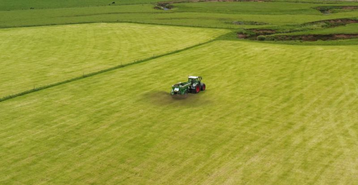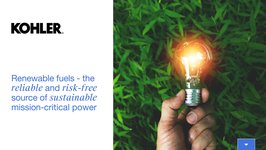Microsoft has signed two carbon removal deals with companies that use crushed rocks to capture carbon out of rainwater.
Meanwhile, a carbon removal buying consortium that includes Alphabet, Meta, and Salesforce has signed a removal deal that removes carbon from the air and de-acidifies rivers.
Microsoft works with Undo
Undo this week announced a follow-on deal with Microsoft to remove 15,000 tonnes of carbon dioxide (CO2) from the atmosphere.
The company removes carbon through enhanced rock weathering (ERW). When silicate rock, such as basalt or wollastonite, is crushed and spread on agricultural land, rainwater containing CO2 reacts with it, locking up CO2 as bicarbonate.
“This agreement with Microsoft is a clear signal to the market that enhanced rock weathering has [the] potential to deliver scalable carbon removal, and that Undo can deliver critical scientific research to instill more confidence in this vital climate tech. We are eager to continue our work advancing the science of enhanced rock weathering by scaling up our research and data-gathering capabilities, which will be greatly facilitated by Microsoft’s continued backing,” said Jim Mann, CEO and founder of Undo.
Undo previously signed a deal with the cloud company last year to remove 5,000 tonnes of CO2 from the atmosphere by spreading 25,000 tonnes of basalt in the UK.
This was the first-ever ERW purchase for Microsoft. The new announcement will see Undo spread 65,000 tonnes of crushed silicate rock across the United Kingdom (40,000 tonnes of basalt) and Canada (25,000 tonnes of wollastonite).
“Microsoft is committed to being carbon-negative by 2030. We are excited to support Undo's enhanced rock weathering carbon removal projects with co-benefits for soils, farmers, and rural communities,” said Brian Marrs, senior director of energy markets at Microsoft. “With this follow-on deal, we look forward to working with the Undo team who will pioneer further deep science across different measurement techniques and at varying scales to deliver crucial ERW process data.”
With the funding, Unso will set up field trials and monitoring sites in Ontario, including one on a research farm owned by the University of Guelph, and at Undo’s principal laboratory for operations at Queen’s University in Kingston. The startup will also set up new field trials and monitoring sites in the UK, including one on a research farm owned by Newcastle University.
Microsoft works with Eion
This week also saw Microsoft sign a carbon removal deal with Eion.
Eion will deliver 8,000 tons of CO2 removal over the next five years through its own ERW process.
The startup will deploy olivine on farmland in the Mid-Atlantic region after the Fall harvest – in a similar process to Undo’s method. In both companies' cases, the crushed rock captures the CO2 and releases minerals and nutrients that benefit the soil, with the CO2 working its way to rivers and eventually sequestering into the ocean.
"A diverse coalition of stakeholders—from corporate offtakers, to companies looking to deploy climate solutions in their own supply chains, to federal agencies—are increasingly investing in the promise of enhanced weathering," said Anastasia Pavlovic, CEO of Eion. "We’re excited to work with Microsoft to continue demonstrating the true potential of the category and add to ERW’s rapidly growing track record."
“Eion’s verification methodology, continuous monitoring of environmental conditions, and established history of successfully delivering carbon removal makes them stand apart in ERW,” said Microsoft’s Marrs.
Microsoft is aiming to be carbon-negative by 2030, and is pursuing this goal by signing renewable energy contracts en masse to power its operations, as well as investing in carbon capture and removal projects that can offset its historical emissions.
Frontier Climate signs river deal
This week also saw a group of hyperscalers and technology companies sign a river-focused carbon capture deal.
Frontier Climate is a consortium that makes aggregated purchases of carbon capture credits from a number of companies, projects, and technologies. It counts Meta, Google-parent Alphabet, Shopify, and Salesforce among its members.
This week CarbonRun announced a $25 million offtake agreement with Frontier members to remove 55,442 tons of CO2 from the atmosphere between 2025 and 2029.
“Through this partnership, we’re scaling this safe, proven method of carbon removal, which holds the potential to reach gigaton levels globally. With Frontier’s support, we'll also conduct critical research to expand the use of river liming to pH-neutral rivers,” the company said.
CarbonRun uses a river de-acidification method called river liming for carbon removal. It adds crushed-up limestone to acidified rivers to repair the damage caused by acid rain and removes CO2 from the air.
The deal is for removal at multiple sites, starting with deployments in Nova Scotia, Canada. This is the first carbon removal offtake via river liming.
Luke Connell, co-founder and CEO of CarbonRun, said: “Beyond removing tons of CO₂, this offtake will enable us to do the research on river liming’s potential in different kinds of rivers. Those findings will make the difference between a pathway that is promising into one we can potentially deploy safely and at scale, putting it on the map as a serious contender for gigaton-scale carbon removal."
Stripe is making an additional $1m R&D grant for CarbonRun to better understand the potential of river liming to remove carbon and benefit ecosystems in neutral pH rivers.
Frontier has invested in projects from the likes of Vaulted Deep, Lithos, CarbonCapture Inc., Heirloom, Airhive, Inplanet, and Living Carbon. Frontier has contracted for more than $250 million of carbon credits to date.
Google has previously said it has made purchases through Frontier, without providing details, while Frontier has also made carbon credit purchases from Alphabet-owned direct air capture firm 280 Earth.
Nan Ransohoff, head of Frontier, added: “River liming for carbon removal is cheap, scalable, and measurable. And yet it’s underexplored and underfunded relative to its potential. Moreover, CarbonRun’s work will help establish the foundation for more rigorous evaluation and measurement of aquatic approaches to carbon removal more broadly.”







